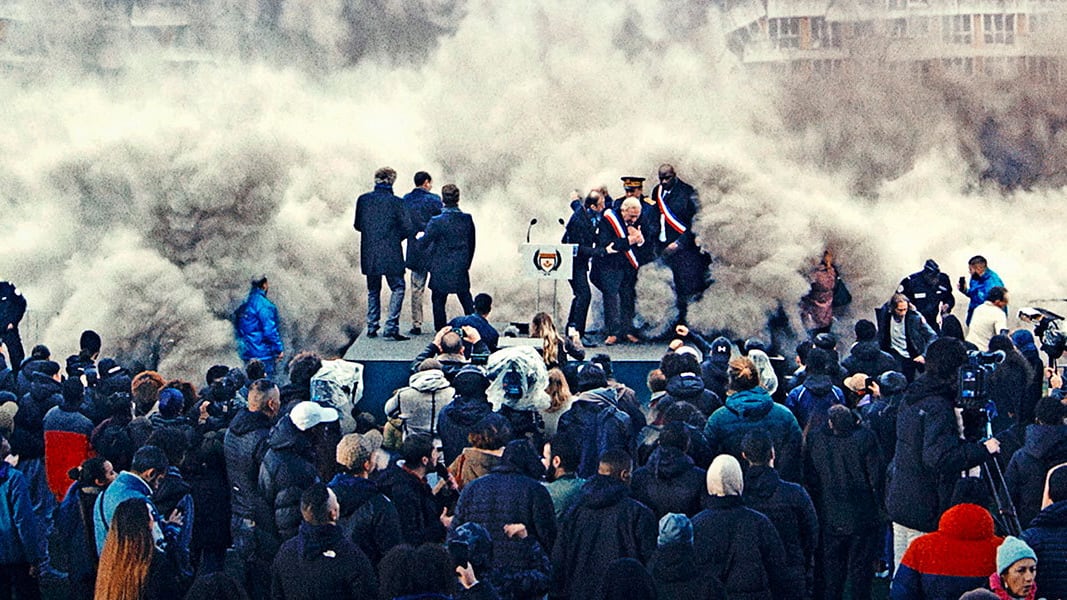Courtesy of TIFF
TORONTO, Canada—Tensions simmer and sparks prepare to ignite in a Parisian suburb wracked with racial and class conflicts in Les Indésirables—and not exactly subtly. When not having his disenfranchised characters walk down housing project staircases into the darkness and chaos as if descending straight into Hell, director Ladj Ly is staring intently at a young man as he fumes with boiling rage, explodes in bursts of physical violence, and reacts to a poster announcing his home’s impending redevelopment (which will displace families in cruel fashion) by setting it on fire. That individual’s name is also Blaz (Aristote Luyindula), just in case his (and this situation’s) incendiary nature wasn’t already abundantly clear.
As its title implies, Ly’s film (showing at this year’s Toronto International Film Festival) is something of a companion piece to his 2019 feature debut Les Misérables, once again focusing on a banlieue populated by immigrants endeavoring to endure in the face of widespread discrimination and hostility from the police and the powers that be. In this conflagratory environment, Haby (newcomer Anta Diaw) works as a local government intern as well as serves as president of a housing association dedicated to assisting foreign transplants with their residence-related issues. When we first meet Haby, she’s slowly moving through an apartment full of mourners who’ve come to pay their respects to her dead grandmother. At the conclusion of this wake, a group of men struggle mightily to carry the coffin down numerous flights of stairs, some of them illuminating the way with flashlights and the casket banging clumsily against the railing and wall—a final example of the fact that, as Haby’s mom says, the deceased never knew peace.
Haby and her neighbors are in a similar state of constant disarray thanks to indignities both big and small. Their problems truly escalate when, at a ceremony to demolish another apartment building—a practice that’s eternally sought by the region’s politicians—the mayor suffers a heart attack and dies. In his stead, he’s replaced by Pierre (Alexis Manenti), a pediatric doctor who assumes the interim position with the blessing of canny legislator Agnes (Jeanne Balibar) but not the full support of deputy mayor Roger (Steve Tientcheu), whose weary and sideways glances indicate that he thinks he’s been unfairly passed over for the post. Roger also believes he’s better suited for the position because, as the child of African immigrants, he knows the district’s poorer communities better—something upon which Pierre’s wife Nat (Aurélia Petit) also comments, recognizing that Pierre is not exactly in tune with his new Black and Arab constituents.

